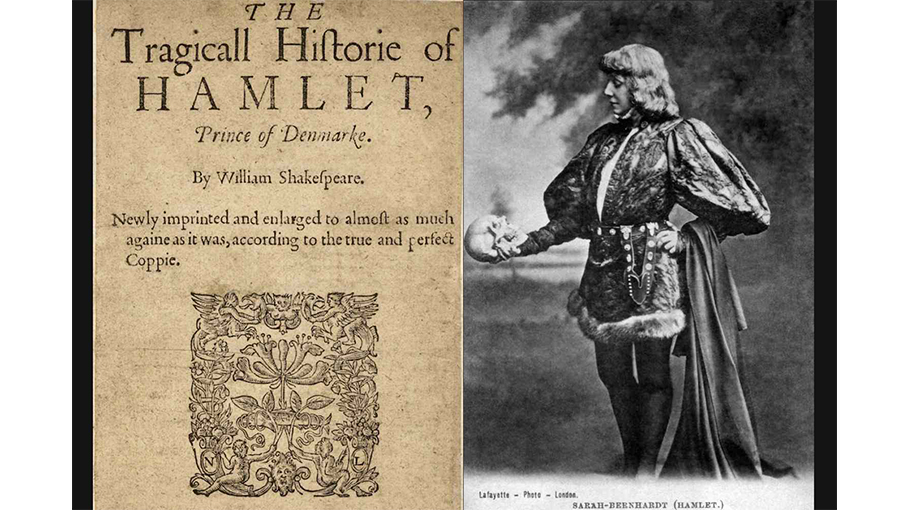Shakespearean tragedy
The timeless tale of Hamlet

The most painful part in Shakespeare’s Hamlet was the remarriage of Hamlet’s mother to his uncle. Once he stands face to face with his mother, his mother was trying to console him and requested him to adjust to the changes. But Hamlet could not accept it. Asserting his position, Hamlet requested his mother not to go to his uncle’s bed and further told if you go again to my uncle, I will believe that “Frailty, thy name is woman.”
In the realm of literature, few works have managed to captivate and resonate with audiences for centuries quite like William Shakespeare's iconic play, "Hamlet." First performed in the early 17th century, this tragedy has stood the test of time, continually intriguing and challenging readers with its exploration of human nature, revenge, and the complexities of the human mind.
"Hamlet" tells the story of the Prince of Denmark, who is haunted by the ghost of his father, the former king. The ghost reveals that he was murdered by Hamlet's uncle, Claudius, who now sits on the throne and has married Hamlet's mother, Gertrude. Consumed by grief, anger, and a burning desire for revenge, Hamlet embarks on a tumultuous journey to uncover the truth and avenge his father's death.
One of the defining features of "Hamlet" is the depth and complexity of its characters. Hamlet himself is a fascinating figure, torn between conflicting emotions and driven to the brink of madness. Through his soliloquies, Shakespeare delves into Hamlet's tortured psyche, allowing readers to witness his inner turmoil as he grapples with existential questions and the morality of his actions. His famous soliloquy, "To be, or not to be," encapsulates his profound contemplation on life's purpose and the struggles of human existence.
The play also features a range of supporting characters who add layers of intrigue and depth to the narrative. Ophelia, Hamlet's love interest, is caught in the midst of the chaos and becomes a symbol of innocence lost. Polonius, Ophelia's father, is a cunning and manipulative courtier whose actions contribute to the tragic events that unfold. And then there is the enigmatic and witty Hamlet's friend, Horatio, who serves as a loyal confidant and a voice of reason amidst the turmoil.
Revenge is a central theme in "Hamlet," and Shakespeare expertly explores its destructive power and the moral dilemmas it presents. As Hamlet's quest for vengeance unfolds, the play raises questions about the consequences of seeking justice through violence. It prompts us to ponder whether revenge can ever truly bring resolution or only perpetuate a cycle of bloodshed and tragedy.
Furthermore, "Hamlet" delves into the theme of madness, blurring the lines between reality and illusion. Hamlet's erratic behavior and feigned madness perplex both the characters within the play and the audience. This exploration of the fragile boundaries of sanity adds an intriguing layer to the narrative, forcing us to question the nature of madness and the limits of our own perceptions.
Shakespeare's masterful use of language and poetic devices is on full display in "Hamlet." The play is replete with memorable quotes that have become ingrained in the literary canon. From Hamlet's haunting plea, "The play's the thing wherein I'll catch the conscience of the king," to his profound declaration, "This above all: to thine own self be true," the play is a treasure trove of poetic brilliance that continues to inspire and resonate with readers and theatergoers alike.




